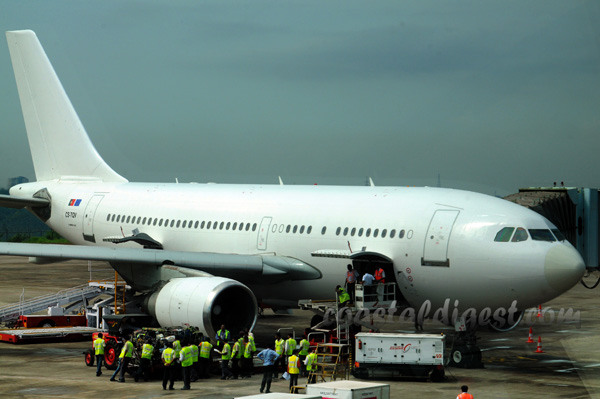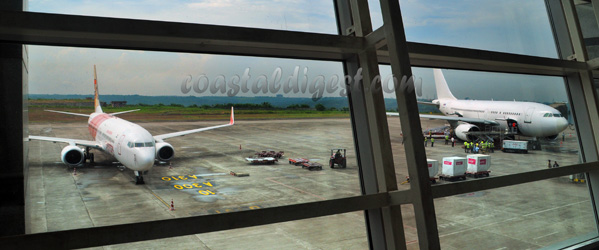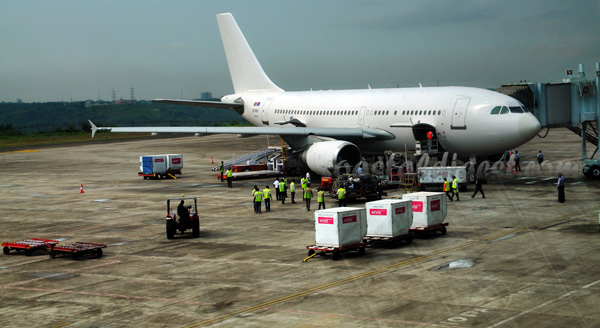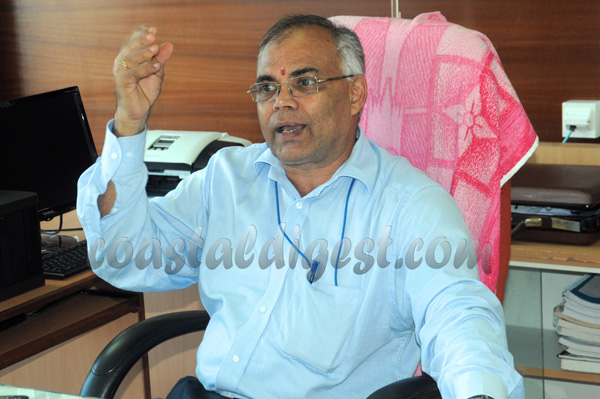
Mangalore, September 28: The Air Bus 310 aircraft operated at Mangalore Airport for the first time on Friday, as it has been pressed into the service of Hajj pilgrims.
Elated at the development, M R Vasudeva, Director, Mangalore Airport, said that handling of this heavier aircraft has come as yet another achievement for the Airport. “The aircraft landed at our tarmac at 8:58 am and we received a positive response from the flight commander Dias Gomes in terms of our Airport infrastructure, ELS and other requirements”, Mr. Vasudeva said.
The aircraft has been taken on lease by Air India from a company called White Airways of Portugal. Unlike the normal aircrafts which have a 186 seating capacity, the Air Bus 310 can accommodate 220 passengers, Mr. Vasudeva said. The holding capacity of the aircraft is 24 tonnes and the baggage loading process is automated unlike the manual process involved in other smaller aircrafts, he said.
'Can bring Zam Zam water along'
Mr. Vasudeva said that this time around with the Air Bus 310 coming into the picture, it would be easier for Hajj pilgrims to bring Zam Zam water along with them in the aircraft itself. “Earlier they would have to wait for the cargo delivery to obtain the Zam Zam water. It would take 10 days and the pilgrims were perturbed about it. But now, the Air Bus can facilitate them to bring along with them 5-10 ltrs of Zam Zam water in the flight itself”, Mr. Vasudeva said.
The Airport has been allowing pilgrims to use its old terminal building for Hajj pilgrimage, Mr. Vasudeva said, providing them with the facilities. “By allowing the Hajj Committee authorities to make use of our old terminal building, the pilgrims are benefiting a lot in terms of facilities like medical aid, food and bathrooms. This is resulting in lesser expenses for the Hajj organisers or else they might have to shell out about 40-50 lakhs”, he said.
The Air Bus service would be in operation till October 2 for Hajj pilgrims and would spring back into action after 45 days to bring them back, Mr. Vasudeva informed.
'Estimated operating profit of 12 crore'
Mr. Vasdeva said on the occasion that the airport's estimated operating profit is Rs. 12 crore this year. The state government has been requested to provide 150 acres of land for the extension of runway, he said. The runway which currently measures 2,450 metres, will be extended by another kilometer, Mr. Vasudeva said. While the Airport tarmac can still handle a jumbo aircraft sans passengers as there are specifications to be met to make it completely operational, there is absolutely no problem in handling haevy air crafts like Air Bus 310, he said.
Related: First batch of Hajj pilgrims departs from Mangalore








Comments
Add new comment